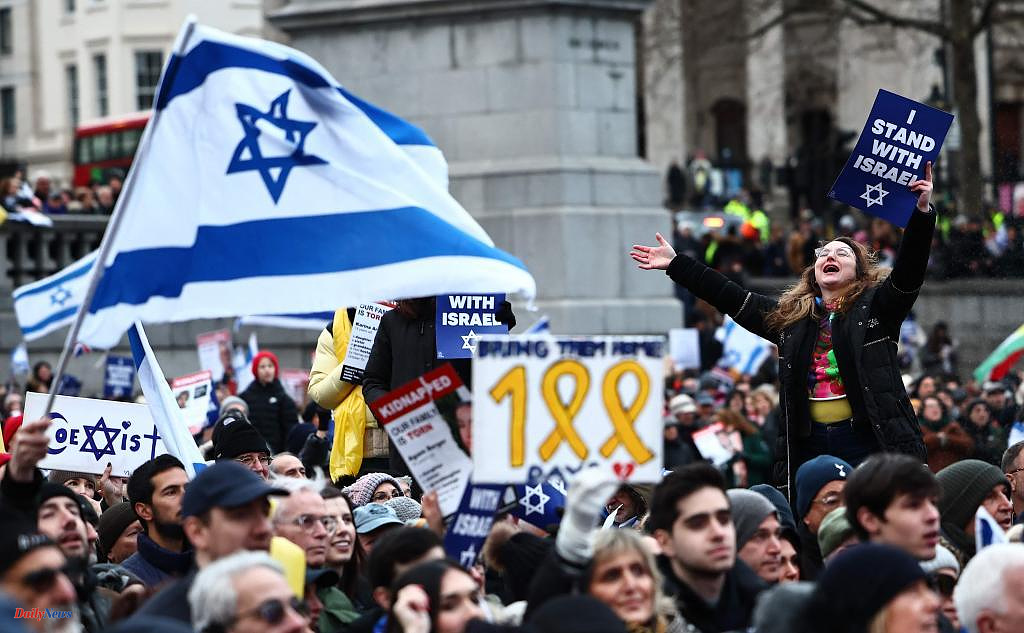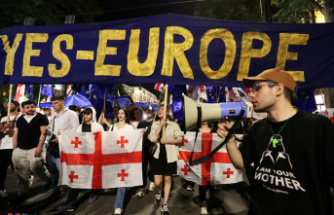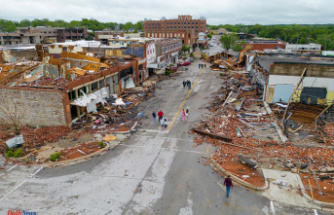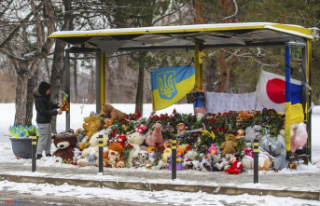With an armed infiltration from Lebanon and mutual attacks, Hezbollah and Israel this Sunday raised one more level the confrontation - extensive although not yet on a large scale - that they have maintained since the beginning of the war that today turned 100 days in the Gaza Strip. Following the Tsahal's massive response to the attack by the fundamentalist group Hamas on October 7 in the south of Israel, the Lebanese militia attacks its great enemy as "support and to wear down the Army" encountering increasingly forceful responses from the Air Force in southern Lebanon. This morning, a commando from Lebanon was discovered by an Israeli patrol - notified by aerial surveillance - in the border area of Har Dov or Shebaa Farms. "The three terrorists who infiltrated our territory opened fire and shortly after the soldiers killed the terrorists," the Israeli spokesman announced, adding that five soldiers were wounded. Everything indicates that the armed infiltration bears the signature of Hezbollah, although a group calling itself the Islamic Al-Az Brigades assumed responsibility, pointing out that it was their response to the murder of Hamas' number two and an important figure in its armed wing, Saleh al-Arouri in an attack of drones on January 2 in Beirut. In the middle of the morning, an Israeli woman, 76, and her son, 45, died in their home in the small town of Yuval due to the direct hit of an anti-tank missile fired by Hezbollah in one of its attacks this Sunday against communities and military positions in Israel. The pro-Iran militia claimed that the target in Yuval was a military force. Israel responded with artillery fire and later Air Force fire against Hezbollah more than 30 kilometers from the border.
The head of this group, Hasan Nasrallah, confirms that the US warned Beirut that if this front does not cease, Israel could start a war against this militia with all that it would mean for Lebanon. "We are going to continue fighting on our front and continue causing casualties to Israel. They have asked us to stop fighting so that Israel does not wage war on Lebanon," he declared in a speech this Sunday in which he praised the figure of the head of the unit. Radwan Force in southern Lebanon, Wissam al-Tawil, killed in a recent Israeli attack. "Washington's intimidation will not help, neither today nor tomorrow. The one who should fear war is Israel. We have been prepared for war for 99 days and we are not afraid of it. We will fight without borders," he warned, although despite the rhetoric it does not seem now have interest in a war with Israel.
According to him, after 100 days of war in Gaza, Israel has failed to subdue Hamas while its number of casualties continues to grow. "The enemy could not eliminate the resistance, not even the Hamas Government. He could not stop the projectiles even from northern Gaza," he added, convinced that Israel will have to accept the fundamentalist group's conditions for the truce.
Nasrallah warns that its attacks against northern Israel will not stop until the offensive in Gaza stops and hopes that the escalation will be used to satisfy its territorial demands in disputes with Israel. The Israeli Government, for its part, demands through diplomatic and if not military means the withdrawal of the pro-Iran militia to the north of the Litani River as established by resolution 1701 after the 2006 war. The American emissary Amos Hochstein holds meetings at most high level in Beirut and Jerusalem to avoid a war that would be even much more intense than that in Gaza where, according to the Ministry of Health controlled by Hamas, the Israeli offensive has caused almost 24,000 deaths with a dramatic humanitarian crisis that, for example, includes the displacement of 1 .9 million of the 2.3 million inhabitants. The Hamas attack 100 days ago left 1,200 dead in southern Israel while 188 soldiers have died in the raid on the Palestinian enclave where thousands of homes have been destroyed or severely damaged after several months of bombing. According to Army data released this Sunday afternoon, the number of armed members of Hamas and other groups killed in the attacks and combats after 7-O exceeds 9,000. Of the 11,000 projectiles fired at Israel that crossed its borders, 9,000 came from the Gaza Strip, 2,000 from Lebanon and about 30 from Syria. 100 days later, 132 of the almost 250 kidnapped in southern Israel remain in captivity. Added to them are four (two citizens with mental problems who entered Gaza on their own and the bodies of two soldiers killed in the 2014 war). In the massive 24-hour demonstration that began on Saturday night in Tel Aviv, the harsh testimonies (including rapes of girls in captivity in Gaza) of some of the more than 100 hostages already freed strengthened the unanimous cry for the Government to reach an agreement now that allows his release. 100 days later, the intensity of the fighting and air attacks in the southern area of Khan Younis contrasts with the less massive phase in the north of the Strip where thousands of soldiers returned to Israel. The question is whether they will return or be part of the offensive against Hezbollah in the coming months, and whether mediation will prevent a war like the one in 2006.












